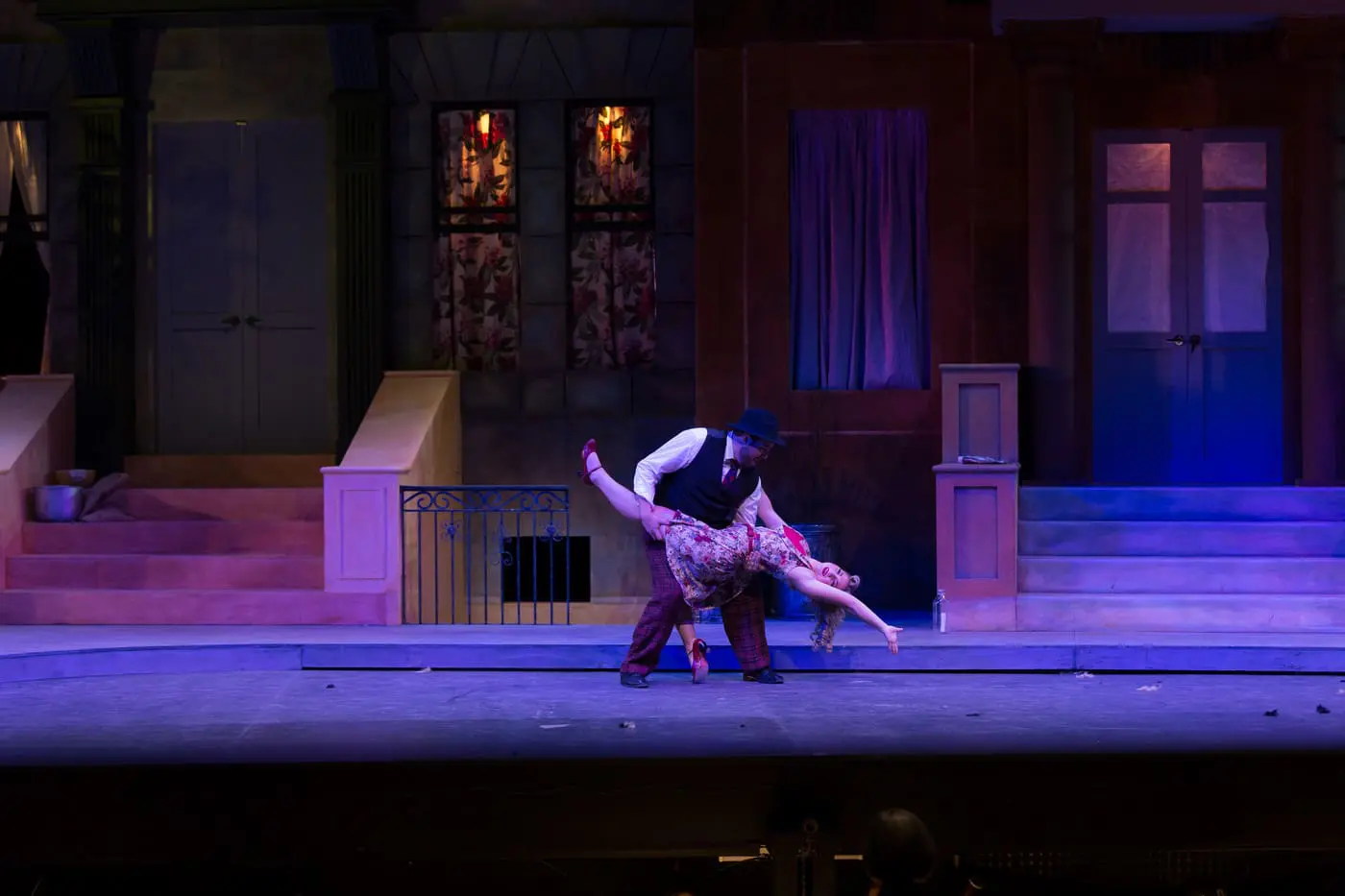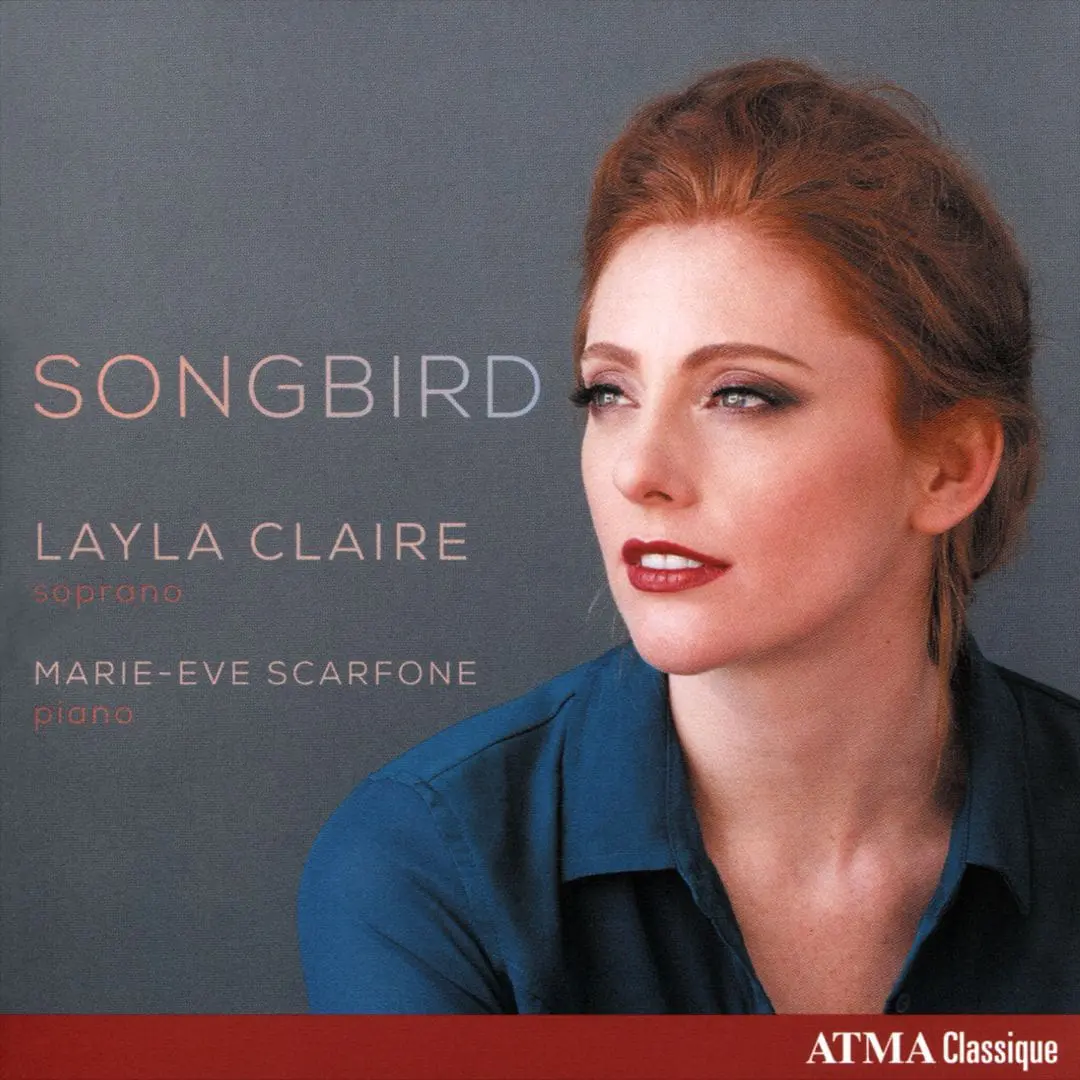Kurt Weill’s Street Scene, presented by UofT Opera and directed by Michael Patrick Albano takes advantage of a talented ensemble while dealing with what is a rather unfocused work for the stage. As seen on Nov. 22, the opera’s themes—relevant when introduced in 1946 as they still are today—present interesting conversations and ideas, though very few are fully realized.
The opera opens during a heatwave in a New York City neighbourhood as its tenants complain about the weather in “Ain’t it Awful, the Heat?” Exposition is well-delivered well by the local gossips and housewives Emma Jones (Jamie Groote), Olga Olsen (Emma Bergin), and Greta Fiorentino (Maeve Palmer), all of whom relish the number’s quick dialogue and dragging expressions.
However, it’s not until the entrance of Anna Maurrant (Tatiana Stanishich), who is believed to be having an affair with the neighbourhood milkman Steve Sankey (Angelo Moretti), that things really pick up steam. Stanishich is a strong presence throughout, ensuring that Anna’s gentle, caring nature comes through in both her physical and vocal delivery. Her rendition of “Somehow I Could Never Believe,” is a highlight—Stanishich convincingly delivered this sentimental number with a true sense of hope that bleeds into sorrow. Her Act II “A Boy Like You” is strong enough musically, but it is her interaction with her son Willie (Danielle Nicholson) that highlights Stanishich’s ability to commit to Anna’s delicate, motherly nature.
It’s in Anna’s husband Frank (Peter McGillivray) that a strong antagonist is presented—he stands against change, and his booming, clear baritone shines through and at times, dominates the large orchestra in “Let Things Be Like They Always Was.” McGillivray is a dominating presence among the cast and commands all of his scenes with subtle gestures and a ‘neighbourhood bully’ persona.
The only character to hold ground against Frank at any point is his daughter Rose (Emma Greve), who openly questions and argues his beliefs in defense of her mother on several occasions. Greve is a bright spot in a piece that, once the big Broadway-inspired numbers are done, is quite dark thematically. Her “What Good Would the Moon Be?” highlights an adaptable soprano, especially impressive at the song’s close where she delivers a true big finish, as she does in all her arias and duets.
With the introduction of Rose’s love interest, Sam Kaplan (Matthew Cairns), we get to hear wonderful give-and-take between two singing actors’ voices, however noticeably different their delivery. While Greve is intensely emotive, Cairns is restrained and at times cold in his physical performance. His rich tenor soars during their Act I duet, “Remember That I Care,” but he seems removed emotionally from the text. Whether this was a choice based on the character’s academic background or his logical nature, it was difficult to believe in his sincerity while he stood ramrod-straight and rarely emoted.

Matthew Cairns (Sam Kaplan) and Emma Greve (Rose Maurrant) in UofT Opera’s Street Scene. Photo: Richard Lu
The story is well-supported by a large ensemble in which a number of cameo roles nearly stole the show. Act I’s “Ice Cream Sextet,” spearheaded by Lippo Fiorentino (River Guard) was a much-needed boost of energy and optimism; Guard’s delivery was hilarious and entertaining—his over-the-top Italian accent was no doubt a major factor.
The “Moon-Faced, Starry-eyed” dance number in Act I, led by Mae Jones (Caroline Stanczyk) and her beau Dick McGann (Alexander Bowie), was enhanced by Stanczyk’s on-point, thick New Yorker accent, and the pair’s jitterbug danced alongside several other ensemble members. It was a great addition to the otherwise stand-and-deliver presentation of the show’s musical catalogue.
Despite the strength of the cast, Street Scene‘s inclusion of a number of story lines that essentially go nowhere detracts from its overall effectiveness. There is clearly tension within the Maurrant family. At two points, it’s learned that the Fiorentinos are unable to have a baby and despite Palmers’ beautifully sad emoting, nothing comes of this fact. The Hildebrand family, at one point celebrating daughter Jennie’s (Georgia Perdikoulias) graduation and art school scholarship, are later displaced with little further attention paid to their situation. These are just two of the subplots—several similar story lines are hinted at, but disregarded, leaving a lot of unanswered questions.

Korin Thomas Smith (Harry Easter) and Emma Greve (Rose Maurrant) in UofT Opera’s Street Scene. Photo: Richard Lu
Despite these structural flaws, the large ensemble cast performed their numbers with great polish. The large orchestra, conducted by Sandra Horst, did Weill’s arrangements great justice. Under Horst’s leadership, the music swells and softens according to each singer’s needs and connects a broad range of musical styles smoothly. Sets (Fred Peruzza) and costumes (Lisa Magill) are straightforward and era-appropriate throughout, and are valuable in establishing the setting of a low-to-middle class 1940s New York neighbourhood.
UofT Opera’s Street Scene proves that a strong cast of singers and actors can carry an overburdened script far. Albano’s direction allows the tense plot to explode in a gripping Act II, making connections between love and violence as relevant today as they were when Weill adapted Elmer Rice’s titular novel dealing with unbalanced family dynamics.

















